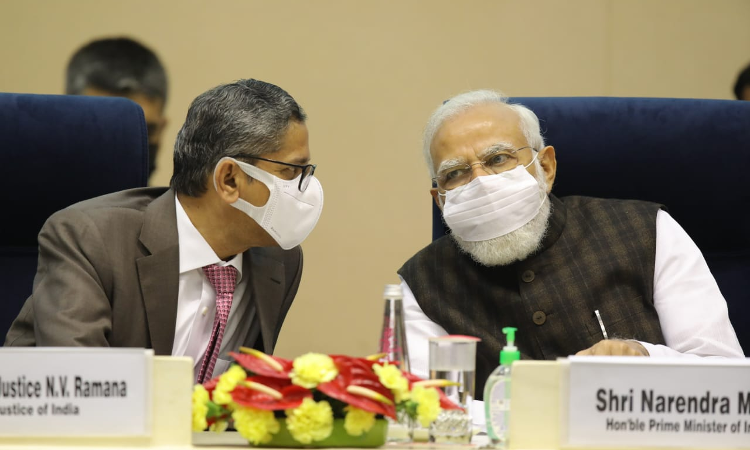Judicial Interventions Intended To Nudge The Executive, Not To Usurp Its Role : CJI Ramana
LIVELAW NEWS NETWORK
26 Nov 2021 8:05 PM IST

Next Story
26 Nov 2021 8:05 PM IST
The Chief Justice of India NV Ramana on Friday said that the intention behind judicial interventions is to nudge the executive and not to usurp its role. The CJI was speaking at the a function organized to celebrate the Constitution Day in the presence of Prime Minister Narendra Modi, Law Minister Kiren Rijiju and other judges of the Supreme Court.After speaking about constitutional scheme...
